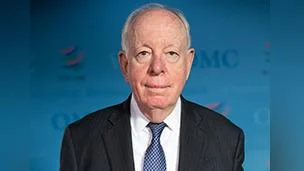DDG Hill has highlighted the benefits of re-globalization in building a resilient and inclusive global economy. According to Hill, shifts in supply chains are being driven by risk management, cost factors, and emerging technologies. Recent crises such as the COVID-19 pandemic, geopolitical tensions, and extreme weather have exposed vulnerabilities in traditional supply chains. In response, businesses are diversifying suppliers, adopting "just-in-case" strategies, and strengthening local sourcing.
Hill noted that rising labor costs in major manufacturing countries and technological advances also contribute to these shifts. Artificial intelligence is one example of technology enabling less skilled workers to engage in complex production processes, potentially altering comparative advantages among countries.
Addressing economic fragmentation concerns, Hill emphasized that World Trade Organization (WTO) studies suggest splitting global trade into isolated blocs along geopolitical lines could reduce long-term global GDP by around 5%. “And this is only the tip of an iceberg," she said. Additional losses would arise from reduced economies of scale, transition losses, financial distress, and fragmented data flows.
However, Hill argued that economic fragmentation is not inevitable. She proposed "re-globalization" as a pathway for equitable growth by integrating previously excluded economies and regions into global supply chains. Countries like Mexico, Viet Nam, Cambodia, Romania, Costa Rica, Türkiye, and Morocco have benefited from expanded participation in global value chains. The share of supply chain trade in global trade increased from 44% in 2020 to 49% in 2022. By diversifying supply sources companies can mitigate risks of bottlenecks and component shortages enhancing global economic resilience.
Hill stressed that WTO members are increasingly supporting initiatives to help developing economies harness investment facilitation benefits digital trade opportunities and growing service sectors as part of broader efforts to make supply chains more resilient.
The panel organized by Economist Impact included Feryal Ahmadi from Dubai Multi Commodities Centre Elizabeth Baltzan from the Office of the United States Trade Representative Roula Jeha from J.P. Morgan moderated by Economist's Anjani Trivedi.

